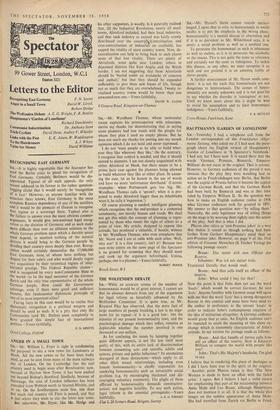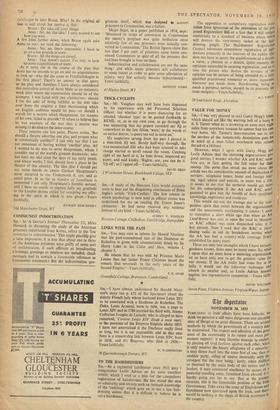CHEQUES
a growing extent in trade, and since it was useful for foreign traders to maintain their currency balances in London in the form of sterling, it was not long before several foreign banks began to open offices in London to undertake some of the business formerly done by British banks. There were no restrictions to keep them out and before long they were undertaking business in bills of exchange and entering the foreign exchange market. This brought added competition for the City's banks and before the First World War the question of the influx of these foreign branch offices was often a sore point to the established banks. Yet as the years went by their numbers in- creased. By the nineteen-thirties their number had exceeded the eighty mark, without any catastro- phic effect on the business of the domestic banks. There was plainly room for all. Now there are even more foreign banks than before the war. Although the German branches have not been reopened, many others have taken their place. In fact, something like thirty foreign branch offices are entirely post-war establishments.
Basically, they are still doing what their fore- runners came to do more than half a century ago. A high proportion of the world's trade is still done in sterling and most countries still find it useful to maintain working balances in the form of sterling in London. The amount varies as confidence in the pound varies. But by and large a working mini- mum is kept here even in the worst currency crises. Within the past three or four years the Bank of China alone is believed to have had sterling balances in London of at least £100 million. They are now regarded as well below this level, but they may still be reckoned in tens of millions of pounds. It is also common knowledge that Russia and many of the other satellite countries use sterling on an extensive scale in the settling of their foreign trade with the non-Communist world. Hence the importance of having their appropriate bank branches in the City.































































 Previous page
Previous page